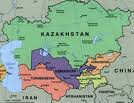Searching for Answers to the Balochistan Bombing

Let me remind you all that an intelligence agency aspires for maximum output with minimal input, and that often times they don’t even have to ‘organize a provocation’, they just encourage it or allow it to go on without any interference. That’s likely what happened in balochistan; whether india knew about it in advance or not, it ultimately ended up supporting new delhi’s interests.
Last week Pakistan was rocked by a carefully plotted suicide attack which killed dozens of lawyers and drew international attention to the province of Balochistan. The details of the attack prove that this was a premeditated assault against a particular class of victims in the most vulnerable geostrategic location in all of Pakistan, and this makes one wonder exactly what the terrorists’ long-term objectives are in doing this. To put everything into context, Balochistan is the largest province of Pakistan and it has an up-and-down history within the country, sometimes being the scene of insurgent revolts and terrorism – not always the same thing, mind you, but nowadays overlapping – and other times being the peaceful peripheral location that it’s otherwise known for. The reason why I mention Balochistan’s separatist inclinations isn’t because this group of fighters was responsible for the terrorist attack, but because the terrorists wanted to spark a militant reaction from them which would create more complications for Islamabad and possibly embroil the Pakistani Armed Forces in yet another internal conflict alongside the one they’re periodically fighting in the Federally Administered Tribal Areas, or FATA.
Whoever the terrorists really were who did this atrocious act, they knew precisely what they were doing, and it’s to manipulate all sides through a horrifically disruptive terrorist attack in order to plunge the province into violence. The reason isn’t just to spread the Pakistani military far and thin, though that’s part of it. Balochistan is preordained as the scene of future externally provoked violence because its historical situation predisposes it to easily exploitable tendencies, but the timing of the latest attacks is clearly due to its present geostrategic significance to China. Beijing is investing $46 billion in the China-Pakistan Economic Corridor that will terminate in Gwadar port and provide the People’s Republic with its first-ever reliable non-Malacca trade route to the Indian Ocean, and thenceforth to the EU, Mideast, and African marketplaces. CPEC, as it’s called, transits through Balochistan Province, there’s no going around this fact because that’s where Gwadar is located, so this is why it’s being targeted. It’s part of the indirect Hybrid War on China’s global infrastructure interests, using the proxy forces of international terrorism and perhaps one day soon even Balochi separatists again to achieve this goal.
And let’s not forget that Pakistan arrested an Indian intelligence agent from the Research and Analysis Wing, or RAW, India’s version of the CIA, in Balochistan earlier this year, who admitted that he was sent by New Delhi to destabilize the province. I’m not saying that India carried out this despicable terrorist attack or was directly linked to it, but we clearly see that New Delhi has an interest in destabilizing Pakistan and particularly Balochistan in order to get back at China for CPEC and Pakistan for Kashimr, just as the US doesn’t mind terrorism in Thailand so long as it destabilizes the military government and China’s ASEAN Silk Road. In both cases, it doesn’t mean that an Indian or American ‘agent’ was on the ground planting bombs, carrying out suicide bombings, or ordered someone else to do it on their behalf. No, that’s not what I mean, and people who sarcastically throw that out are purposely trying to discredit real arguments here. Let me remind you all that an intelligence agency aspires for maximum output with minimal input, and that often times they don’t even have to ‘organize a provocation’, they just encourage it or allow it to go on without any interference. That’s likely what happened here; whether India knew about it in advance or not, it ultimately ended up supporting New Delhi’s interests.
Always remember guys, there’s no such thing as morals, ethics, or principles in geopolitics, just pure, raw (“RAW”) power.

